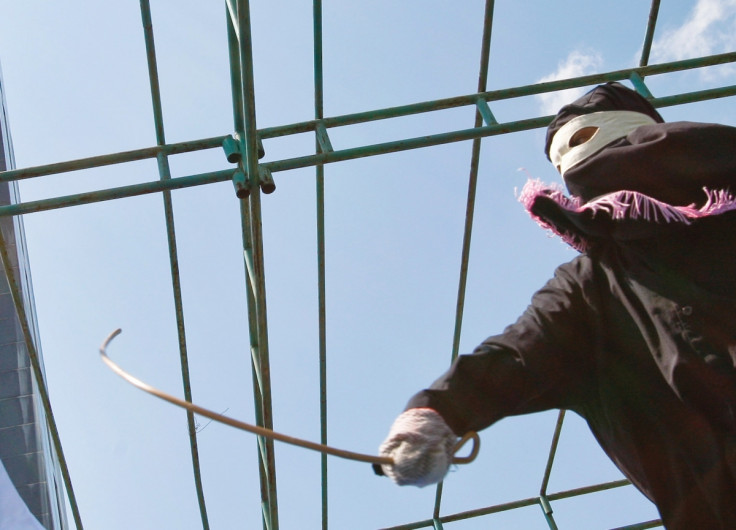Indonesia Aceh Province's Sharia Law: Homosexual Sex 'Punishable with 100 Lashes Even for Non-Muslims'

Gay people in Aceh, Indonesia, are at risk of being lashed 100 times with a cane if the country's parliament passes a new law.
The bill is part of the sharia law implementation process, which started in the special province in 2001.
According to the draft, currently being reviewed in parliament, "anal sex between men" and "the rubbing of body parts between women for stimulation" is illegal and punishable with 100 lashes.
The penalty will apply also for adultery crimes, previously punishable with stoning to death.
The Aceh Party's Ramli Sulaiman, head of the commission that drafted the law, told AFP the majority of parliamentarians appeared to support the draft.
"We have studied the implementation of sharia in countries like Saudi Arabia, Brunei Darussalam and Jordan to draft this law and we are happy with it," he said.
However Djohermansyah Djohan, director general of regional autonomy at the ministry of home affairs, said that his department could refuse to pass the law if it violated human rights.
Amnesty International has expressed concern over the bylaw and has called for an end to caning in Aceh, saying it goes against global laws on torture and human rights, as well as Indonesia's own constitution.
The bylaw reinforces previous sharia legislation that bans alcohol consumption, gambling, fraternising between unmarried men and women, physical displays of affection outside of marriage and the use of revealing outfits by women. Three violations of the dress code could lead to nine lashes.
The draft law allows offenders to pay fines in gold or spend time in jail, as an alternative to the corporal punishment. As for homosexual acts, people can choose to pay a kilogram of gold or 100 months in jail.
Last February, the government of Aceh announced it intended to approve a law which sees the application of sharia law to every citizen in the country, regardless of their religion. There are about 90,000 non-Muslims living in Aceh.
The law, set to pass this week, was justified on grounds of eliminating discrimination in the country, so that everyone would be tried under the same criminal code.
A draft of the local criminal code, known as Qanun Jinayat, includes a clause that stipulates that a non-Muslim caught violating sharia would be given the option to choose between a sharia court or a regular court - but both courts will adhere to Islamic legislation.
However, if the act is considered a crime under sharia but not under the national criminal code, even non-Muslim violators would be tried based on the Qanun Jinayat.
The draft law has sparked worldwide outrage with dozens of people arguing it would discriminate against non-Muslims.
However, according to Teungku Faisal Ali, head of the Aceh branch of Sunni Islam group Nahdlatul Ulama, the bylaw is not discriminatory.
"Please don't portray this bylaw as if it mistreats non-Muslims, because the clause does not force Islamic sharia on non-Muslims — they still can pray according to their religion."
© Copyright IBTimes 2025. All rights reserved.






















